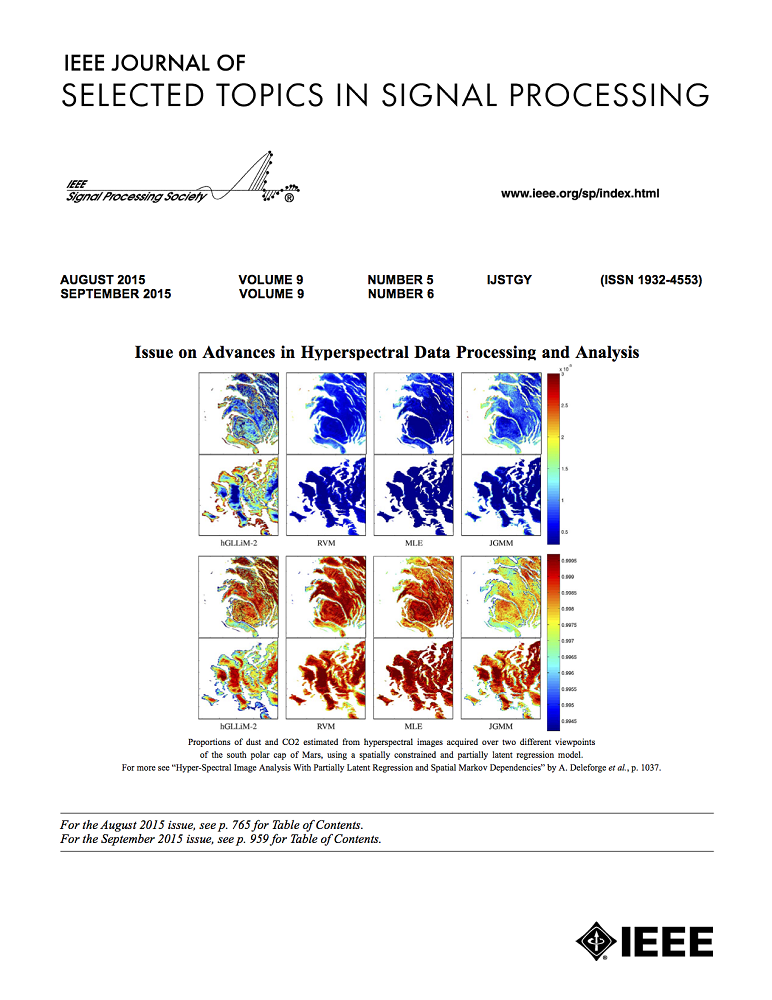XR设备的方向和位置跟踪:基于5G载波相位的方法
IF 8.7
1区 工程技术
Q1 ENGINEERING, ELECTRICAL & ELECTRONIC
IEEE Journal of Selected Topics in Signal Processing
Pub Date : 2023-08-28
DOI:10.1109/JSTSP.2023.3309463
引用次数: 0
摘要
准确了解用户设备(如可穿戴眼镜)的三维(3D)方向和3D位置,在不同的扩展现实(XR)用例和应用中至关重要。在本文中,我们解决了5g XR设备相应的六自由度(6DoF)跟踪挑战。我们描述了一种新的基于上行链路(UL)载波相位测量的估计方法,允许直接在5G网络基站或gnb (gnb)上进行低延迟3D定向和3D位置跟踪。介绍了基于扩展卡尔曼滤波(EKF)的实用信号处理算法,推导并给出了适用的cram本文章由计算机程序翻译,如有差异,请以英文原文为准。
Orientation and Location Tracking of XR Devices: 5G Carrier Phase-Based Methods
Accurate knowledge of the three-dimensional (3D) orientations and 3D locations of the user devices, such as wearable glasses, is of paramount importance in different extended reality (XR) use cases and applications. In this article, we address the corresponding six degrees-of-freedom (6DoF) tracking challenge of 5G-empowered XR devices. We describe a new uplink (UL) carrier phase measurements based estimation approach, allowing for low-latency 3D orientation and 3D location tracking directly at the 5G network base-stations or gNodeBs (gNBs). extended Kalman filter (EKF) based practical signal processing algorithms are described while also the applicable Cramér-Rao lower-bounds (CRLBs) are derived and presented. Also, the related aspect of over-the-air estimation of the XR headset antenna constellation or antenna geometry is addressed. Additionally, the important practical challenges related to user equipment (UE) clock drifting as well as integer ambiguities in carrier phase based methods are both considered. Finally, an extensive set of numerical results is provided in an example indoor factory like environment, covering both 3.5 GHz and 28 GHz network deployments. The obtained results demonstrate the feasibility of continuous 6DoF tracking through the proposed approach, with root mean squared error (RMSE) accuracies below one degree for the 3D orientation and below one centimeter for the 3D location, respectively. The results also demonstrate that UE clock drifting and carrier phase integer ambiguities can both be efficiently estimated and tracked, as part of the overall proposed concept and methods.
求助全文
通过发布文献求助,成功后即可免费获取论文全文。
去求助
来源期刊

IEEE Journal of Selected Topics in Signal Processing
工程技术-工程:电子与电气
CiteScore
19.00
自引率
1.30%
发文量
135
审稿时长
3 months
期刊介绍:
The IEEE Journal of Selected Topics in Signal Processing (JSTSP) focuses on the Field of Interest of the IEEE Signal Processing Society, which encompasses the theory and application of various signal processing techniques. These techniques include filtering, coding, transmitting, estimating, detecting, analyzing, recognizing, synthesizing, recording, and reproducing signals using digital or analog devices. The term "signal" covers a wide range of data types, including audio, video, speech, image, communication, geophysical, sonar, radar, medical, musical, and others.
The journal format allows for in-depth exploration of signal processing topics, enabling the Society to cover both established and emerging areas. This includes interdisciplinary fields such as biomedical engineering and language processing, as well as areas not traditionally associated with engineering.
 求助内容:
求助内容: 应助结果提醒方式:
应助结果提醒方式:


